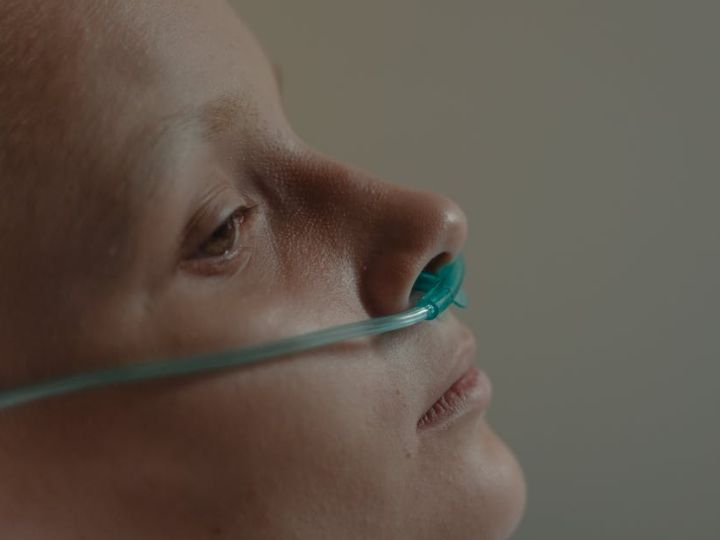2023-09-27 ペンシルベニア州立大学(PennState)
◆研究者は、プログラムに参加した患者の抑うつ症状が有意に減少したことを発見し、抑うつ症状の程度を測定するインベントリであるベック抑うつ尺度(BDI-II)のスコアが約8〜9ポイント減少したと報告しました。これに対し、対照群の参加者は約1ポイントしか減少しなかった。この結果は、MS患者の抑うつ症状を管理し、生活の質を向上させる効果的でアクセス可能な方法を提供する可能性があるとされています。
<関連情報>
- https://www.psu.edu/news/research/story/internet-based-therapy-may-help-depression-people-multiple-sclerosis/
- https://www.thelancet.com/journals/landig/article/PIIS2589-7500(23)00109-7/fulltext
多発性硬化症患者における抑うつ症状軽減のためのインターネット配信認知行動療法プログラム:多施設共同無作為化対照第3相試験 Internet-delivered cognitive behavioural therapy programme to reduce depressive symptoms in patients with multiple sclerosis: a multicentre, randomised, controlled, phase 3 trial
Stefan M Gold,Tim Friede,Björn Meyer,Rona Moss-Morris,Joanna Hudson,Susanna Asseyer,Judith Bellmann-Strobl,Andreas Leisdon,Leonie Ißels,Kristin Ritter,David Schymainski,Hayley Pomeroy,Sharon G Lynch,Julia S Cozart,Joan Thelen,Cristina A F Román,Margaret Cadden,Erin Guty,Stephanie Lau,Jana Pöttgen,Caren Ramien,Susan Seddiq-Zai,Anna-Maria Kloidt,Johannes Wieditz,Iris-Katharina Penner,Friedemann Paul,Nancy L Sicotte,Jared M Bruce,Peter A Arnett,Christoph Heesen
The Lancet Digital Health Published:October, 2023
DOI:https://doi.org/10.1016/S2589-7500(23)00109-7

Summary
Background
Depression is three to four times more prevalent in patients with neurological and inflammatory disorders than in the general population. For example, in patients with multiple sclerosis, the 12-month prevalence of major depressive disorder is around 25% and it is associated with a lower quality of life, faster disease progression, and higher morbidity and mortality. Despite its clinical relevance, there are few treatment options for depression associated with multiple sclerosis and confirmatory trials are scarce. We aimed to evaluate the safety and efficacy of a multiple sclerosis-specific, internet-based cognitive behavioural therapy (iCBT) programme for the treatment of depressive symptoms associated with the disease.
Methods
This parallel-group, randomised, controlled, phase 3 trial of an iCBT programme to reduce depressive symptoms in patients with multiple sclerosis was carried out at five academic centres with large outpatient care units in Germany and the USA. Patients with a neurologist-confirmed diagnosis of multiple sclerosis and depressive symptoms were randomly assigned (1:1:1; automated assignment, concealed allocation, no stratification, no blocking) to receive treatment as usual plus one of two versions of the iCBT programme Amiria (stand-alone or therapist-guided) or to a control condition, in which participants received treatment as usual and were offered access to the iCBT programme after 6 months. Masking of participants to group assignment between active treatment and control was not possible, although raters were masked to group assignment. The predefined primary endpoint, which was analysed in the intention-to-treat population, was severity of depressive symptoms as measured by the Beck Depression Inventory-II (BDI-II) at week 12 after randomisation. This trial is registered at ClinicalTrials.gov, NCT02740361, and is complete.
Findings
Between May 3, 2017, and Nov 4, 2020, we screened 485 patients for eligibility. 279 participants were enrolled, of whom 101 were allocated to receive stand-alone iCBT, 85 to receive guided iCBT, and 93 to the control condition. The dropout rate at week 12 was 18% (50 participants). Both versions of the iCBT programme significantly reduced depressive symptoms compared with the control group (BDI-II between-group mean differences: control vs stand-alone iCBT 6·32 points [95% CI 3·37–9·27], p<0·0001, effect size d=0·97 [95% CI 0·64–1·30]; control vs guided iCBT 5·80 points [2·71–8·88], p<0·0001, effect size d=0·96 [0·62–1·30]). Clinically relevant worsening of depressive symptoms was observed in three participants in the control group, one in the stand-alone iCBT group, and none in the guided iCBT group. No occurrences of suicidality were observed during the trial and there were no deaths.
Interpretation
This trial provides evidence for the safety and efficacy of a multiple sclerosis-specific iCBT tool to reduce depressive symptoms in patients with the disease. This remote-access, scalable intervention increases the therapeutic options in this patient group and could help to overcome treatment barriers.
Funding
National Multiple Sclerosis Society (USA).


